|
Genres, Themes, Actors, and Directors:
- Comedy
- Counterculture
- Dyan Cannon Films
- Elliott Gould Films
- Infidelity
- Marital Problems
- Natalie Wood Films
- Paul Mazursky Films
- Sexuality
Response to Peary’s Review:
Peary argues that this “still funny debut film by Paul Mazursky, about the changing and confused sexual mores of the upper middle class in Southern California during the late sixties… was not as thematically daring as it pretended to be”, and ends with a “cop-out” — but that until its final moments, it is “well written and contains many hilarious vignettes, including an aroused Gould and a disinterested Cannon (both new film stars) in bed after hearing of Culp’s infidelity:
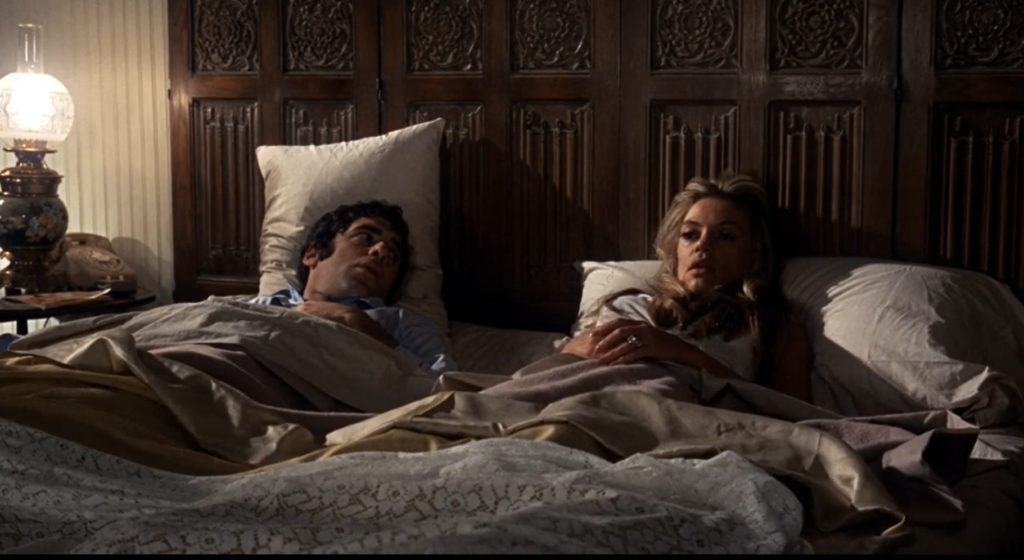
… Culp telling Wood of his affair and becoming slightly annoyed that she’s not jealous:
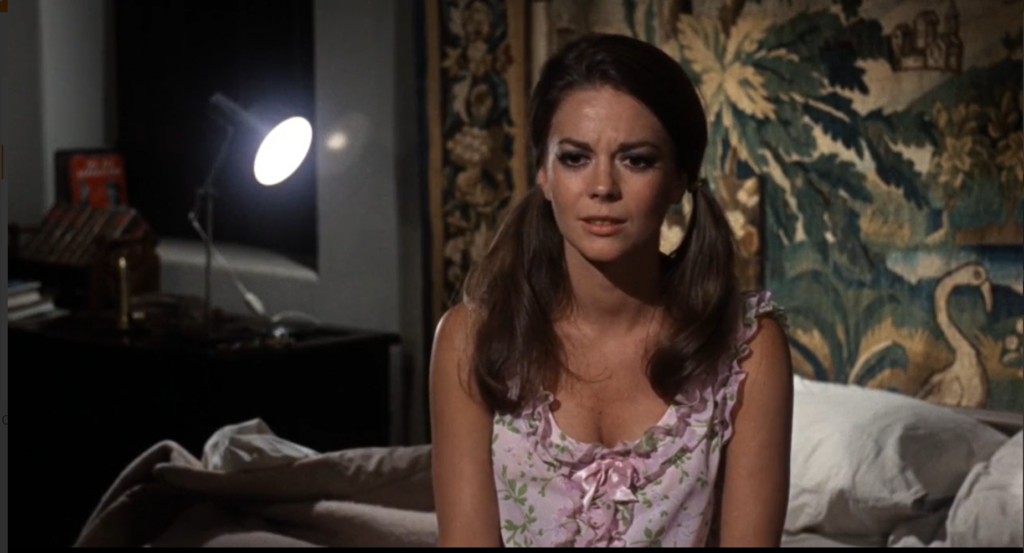
… Cannon talking to her psychiatrist about her sexual confusion:
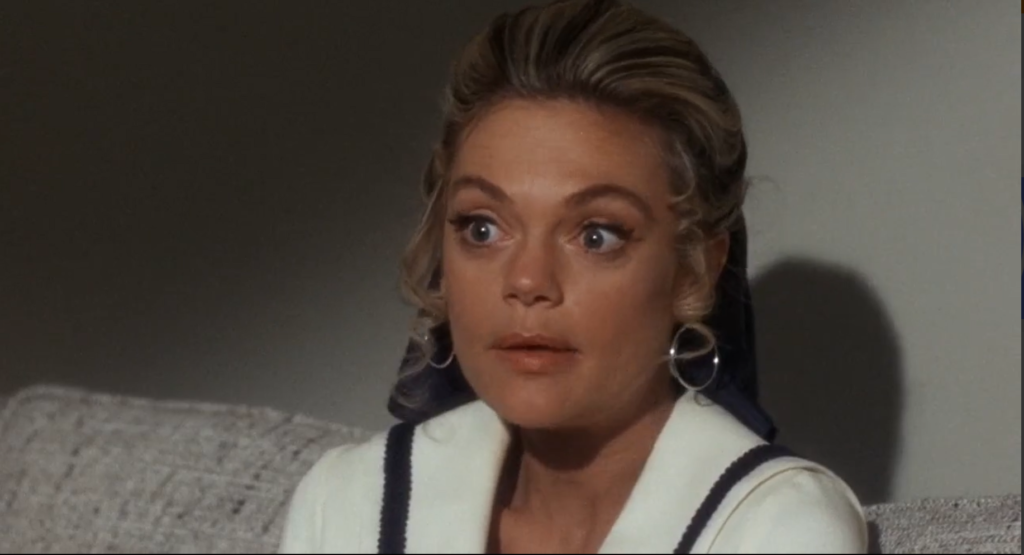
… [and] Culp offering a drink to a nervous lover”.
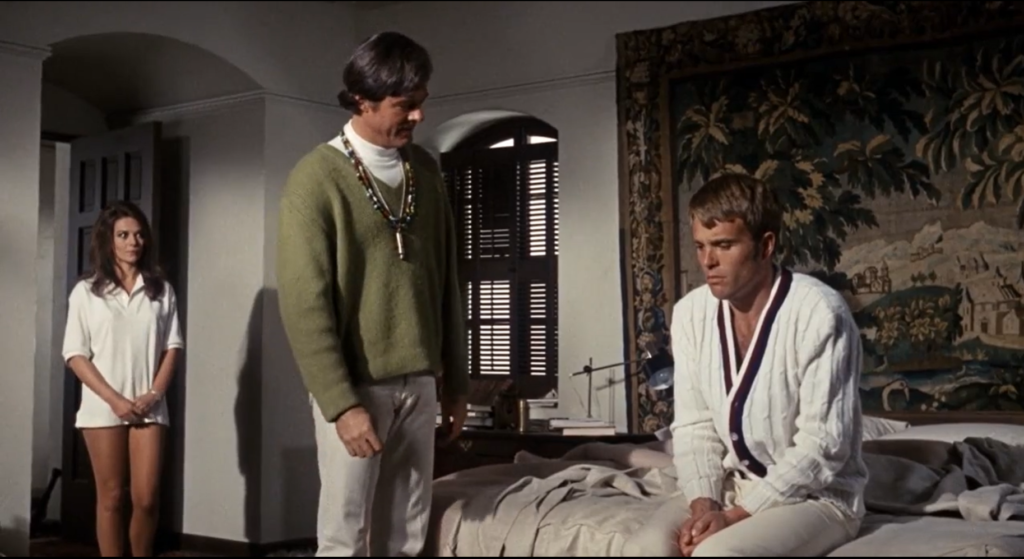
While I agree with Peary that each of the above scenes (among others) is cleverly written and dryly humorous, I disagree with his assertion that the film’s ending is disappointing in any way. This may be a “mainstream movie with an ending… that allowed middle-class viewers to go home happy”, but Culp’s willingness to be open with his wife about his infidelity actually comes across as quite radical, and leads to an equally “radical” response by Wood — not to mention an incisive skewering of gender norms (there’s a dilly of a double-standard that emerges at a certain point in the script, and is nicely handled).
Peary also asserts that “one problem” in the film is that “all four characters come across like jerks by the end,” but I think this is exactly the point. When given permission to follow their desires at whim, without concern for (traditional) social conventions, these characters temporarily devolve into expected narcissism — which doesn’t exactly make them likable; they’re experimenting, and part of the fun in watching their travails is to see how foolishly they flounder.
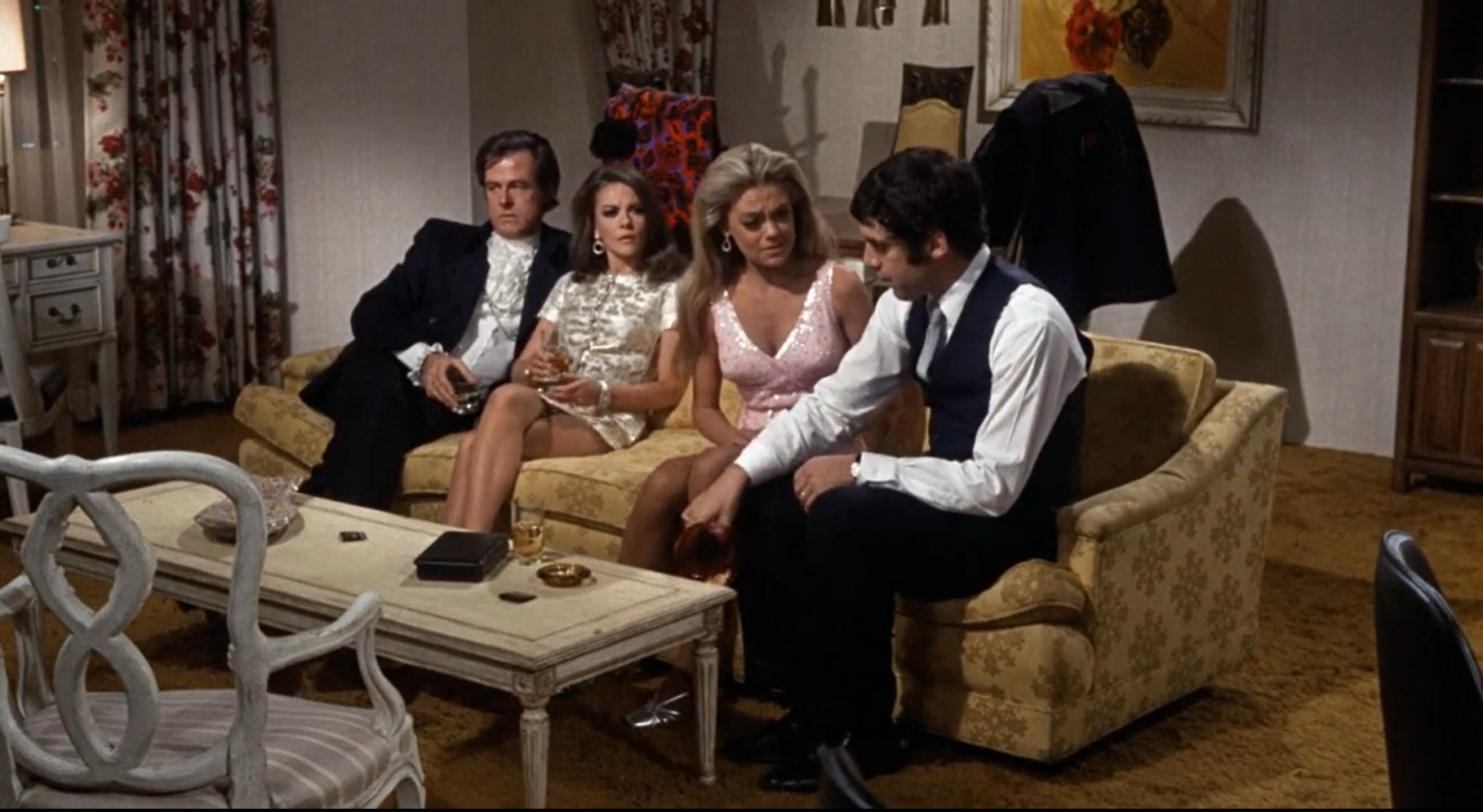
The only character who emerges semi-triumphant within the new state of affairs (at least until the culminating scene) is Wood — who, on a side note, was indeed “never prettier” (a fact which slyly contributes to the inanity of Culp’s decision to cheat on her). The picture’s ultimate moral, I think, is that social strictures and contracts (complete with strategic deception, as needed) exist for a reason, serving as useful tools for navigating the undeniably tricky waters of long-term relationships; it’s to Mazursky’s credit that his film — rather than seeming dated — remains such a potent example of this fact.
Redeeming Qualities and Moments:
- Natalie Wood as Carol
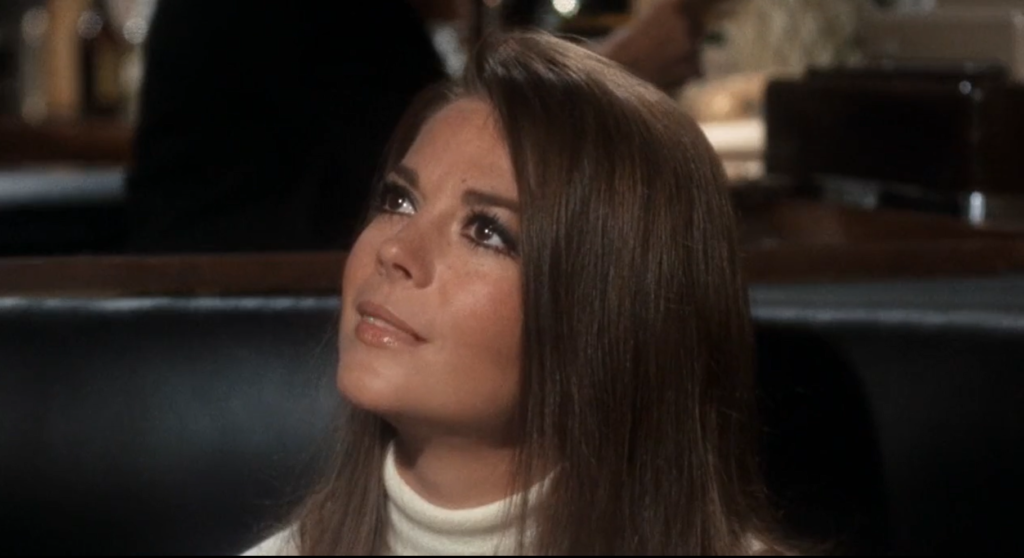
- Dyan Cannon as Alice
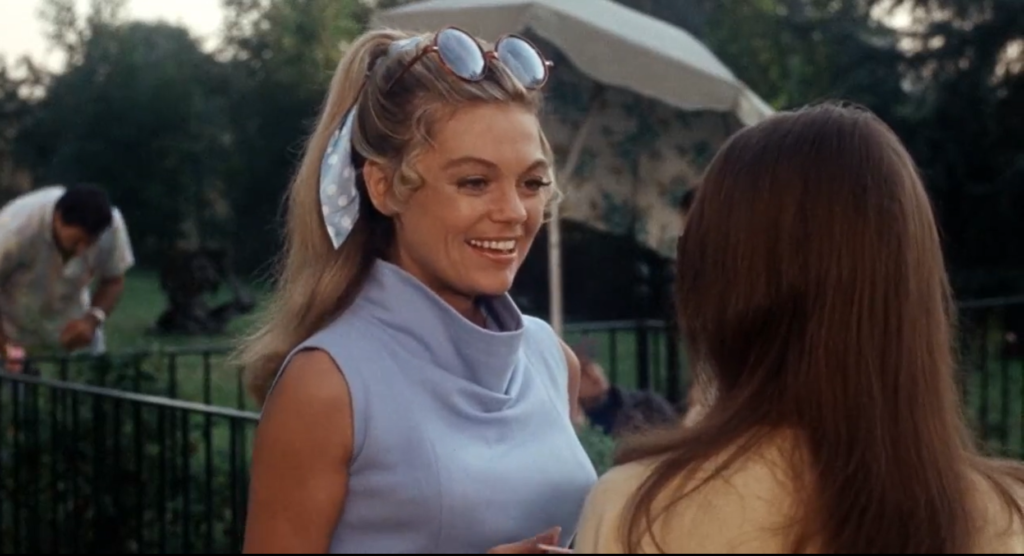
- Elliott Gould as Ted
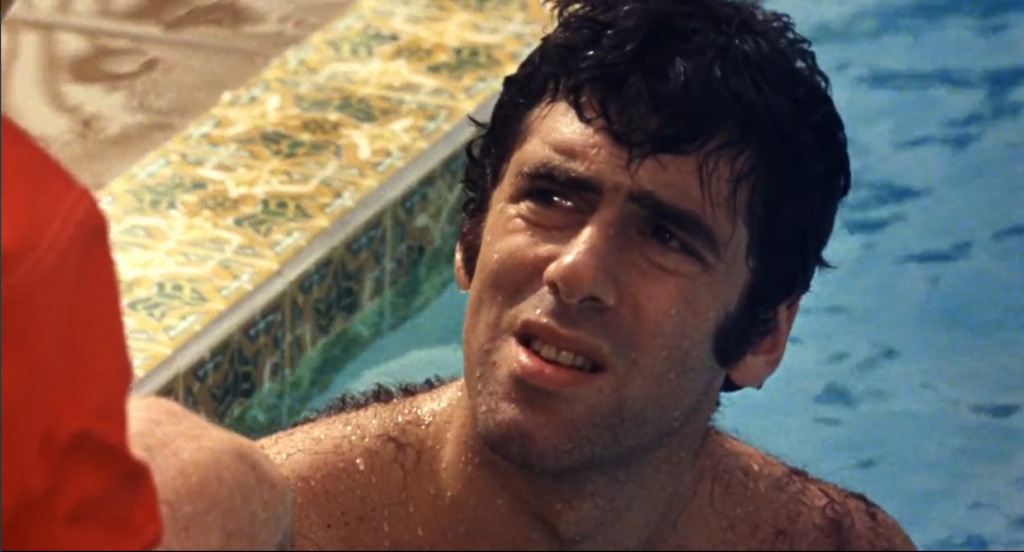
- Robert Culp as Bob
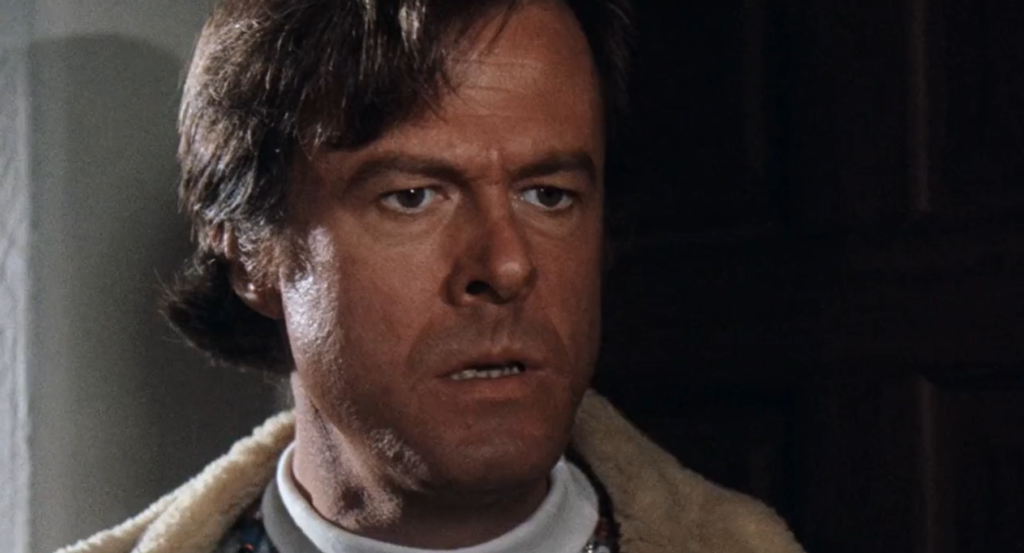
- The hilariously incisive opening sequence at the retreat
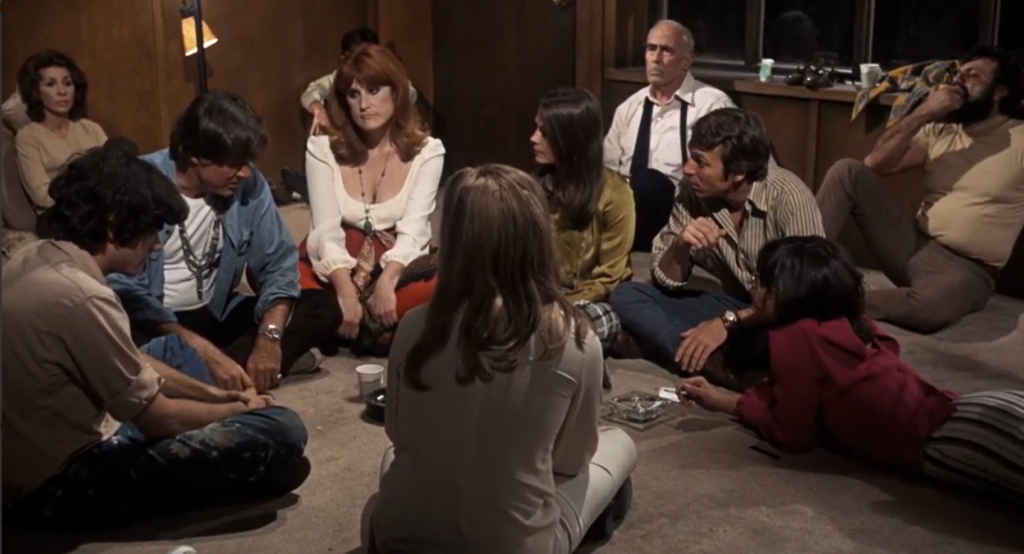
- Mazursky’s surprisingly sharp script
Must See?
Yes, for its historical significance, and as an engaging marital drama.
Categories
- Good Show
- Historically Relevant
Links:
|
One thought on “Bob & Carol & Ted & Alice (1969)”
A once-must for its place in cinema history (due to its attempt, at least, at handling a touchy subject).
~but, on a revisit, I find I don’t personally like the film all that much.
Part of me understands that the film was made for commercial consumption, so I get that – and, as such, it presents its issue in a way that lends itself to interesting follow-up discussion, I’m sure. But I generally find Mazursky an undisciplined writer/director. This debut film certainly reveals some of his strengths (i.e., he clearly seems to like actors and is generous with them) but it also veers off into sloppiness (unnecessary cinema-verite scenes of Culp & Wood’s family just being family) and over-indulgence (some scenes just go on too long when economy would help).
I find the somewhat ‘incestuous’ angle of the four main characters suddenly becoming sexually interested in each other somewhat troubling. Mainly because there really has been no such interest among them all along – and wouldn’t there have been somehow? What we see is four people suddenly deciding to simply have sex with each other for its own sake – which (and this is just me) also is a bit disturbing since the motivation negates who they are as people and reduces them all to sex objects. I realize that is part of the film’s point – that it’s possible to have sex with other people without it necessarily meaning anything other than sex. But it comes off as vaguely piggish. Personally, I’d find the film a lot more interesting if the four main characters each gave in to dalliances with other people *as* people – and outside the foursome. To me, that would be a real conflict, and give the script a lot more weight.
But that’s probably a whole different movie. I know there are plenty of people out there who have sex with others (in and outside of marriage) for its own sake. I just find it dull.
A film like this does hold interest in light of exploration of extra-martial sex in more recent work such as HBO’s ‘Big Love’ (which I’ve seen a bit of and find annoying – since it’s completely angst-ridden and, with all of the screaming and depression, it’s surprising anyone is enjoying the sex). It also reminds viewers that an attempt has yet to be made (seemingly) at the more challenging avenue of polyamory (if such a thing is actually doable if done ‘right’, as its champions proclaim).
Personally, I come around to the constant that most human beings can only navigate their lives properly with the aid of emotional consistency (regardless of the terms). Those unable to navigate that way seem to have the larger issue of the lack of an emotional center.
Fave scene: Wood turns the tables on Culp. This is the one scene that has real pull for me – mainly because I love watching how Wood handles herself in this scene with total control.